Earth’s mightiest heroes don’t wear capes or Lycra suits. They roam the land, soar through the skies, and swim through the seas. They’re wild wonders, armed with abilities we can only dream of. Some even use their powers to save the world, a little every day, running the natural systems that are essential for life as we know it. This National Marine Week, allow us to introduce six of our sea-going superheroes!
A sea full of superheroes
Solar-powered sea slug
This soft-bodied sea creature’s comic book credentials include a name packed with alliteration, a colourful costume (often glowing green with a galaxy of glittering spots), and of course the powers to match its vivid visage! Just like Superman, the solar-powered sea slug draws its strength from Earth’s yellow sun. It snacks on seaweed, eating the algae’s chloroplasts without damaging them, and then makes them part of its own body. It can then use the pilfered parts for its own photosynthesis, turning sunlight into energy. Wow!
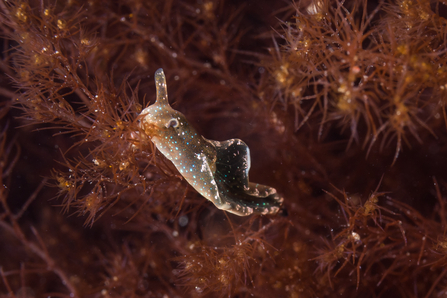
Solar-powered sea slug ©Dan Bolt www.underwaterpics.co.uk
Bottlenose dolphin
A good superhero is always aware of their surroundings. The bottlenose dolphin takes this to the next level thanks to its enviable echolocation abilities. The dolphin fires off a series of clicking sounds that shoot through the water in waves, traveling faster than sound does through air. The sound waves bounce off objects and echo back to the dolphin, who then uses these echoes to determine details about the objects around it. They can judge an object’s size, shape, and distance from the dolphin, as well as the speed and direction a creature is moving. They can even get some information on the internal structure of objects. All this information stacks together to create an impression of the world around them. Daredevil has nothing on a dolphin!
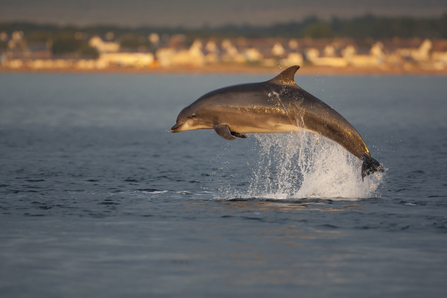
John MacPherson/2020VISION
Small-spotted catshark
Iron Man had to build a suit of armour, but the catshark is born with one! Like other sharks, this feisty fish has super tough skin thanks to its dermal denticles – which literally means “tiny skin teeth”. It’s covered in tiny, tooth-like scales that help protect it from predators and parasites. But this is no simple suit. The scales overlap and line up so that water can flow smoothly over them as the shark swims forwards. This cuts down drag and lets the shark move more quickly. Speed, strength, and style – now that’s a superhero suit!
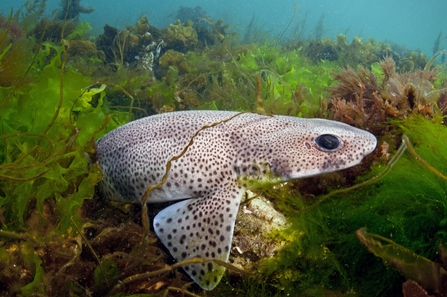
Small-spotted catshark ©Alex Mustard/2020VISION
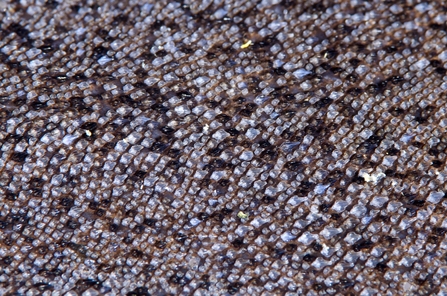
Small-spotted catshark skin ©Alex Mustard/2020VISION
Beadlet anemone
A little reddish-brown blob might not look like much, but as with many superheroes, looks can be deceiving. This rapacious rockpool resident has a secret weapon – it can fire stinging harpoons from its retractable tentacles and from a ring of blue bumps around its body! When its tentacles touch a passing prey species, or another anemone gets close enough to become a nuisance neighbour, it shoots out stinging cells that inject venom into their target. Zap! Prey is stunned, pulled into the mouth, and eaten. Enemy anemones are warned away. A superhero with a sting!
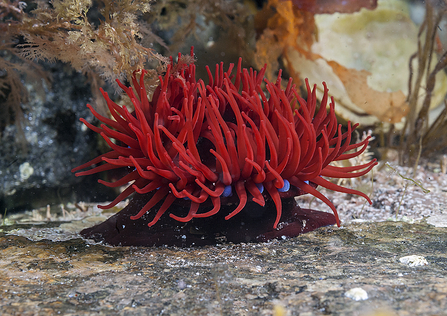
Beadlet Anemone ©www.marknthomasimages.co.uk
Cuttlefish
No superhero squad is complete without a team member that can disguise themselves. Our seas have plenty of potential candidates, including the cuttlefish. This cryptic creature is no stranger to clever camouflage. It can change its appearance at will, blending in with its surroundings to effectively become invisible. It doesn’t just change the colour of its skin – this maritime Mystique can even change its texture to double down on the deception. That’s one sneaky cephalopod!
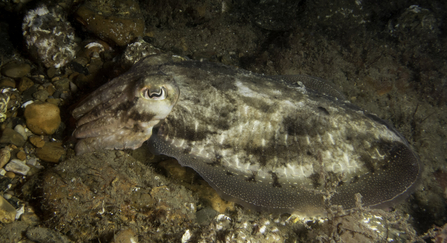
Cuttlefish © Julie Hatcher
Oyster
We all know that sometimes superheroes must team up to save the world. A single oyster might not be all that powerful, but when they grow close together and join forces, they can transform the waters around them. Oysters feed by sucking in water and filtering out particles. Anything edible is digested; the rest is ejected in a mucus-bound lump that tends to settle on the sea floor. As a result, when they spit the water back out, it’s cleaner than it was to start with. They’re natural water filters that improve conditions for other wildlife. Talk about team players!
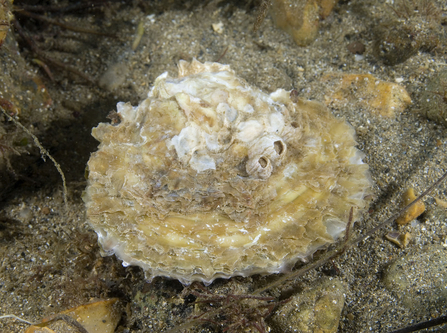
Oyster ©Paul Naylor
Heroes in hot water
Many of our sea-going superheroes are fighting for their lives, battling with villains beyond their abilities: from overfishing, disease, and plastic pollution, to the dramatic effects that the climate crisis is wreaking upon our oceans. We need to do all we can to help turn the tide and give them a fighting chance. It could be by taking action at home, such as reducing our carbon footprint and plastic consumption. Or it could be by campaigning for bigger changes in marine protection, energy use, and other major policies. Together, we can make a difference for our seas. Ocean lovers assemble!



